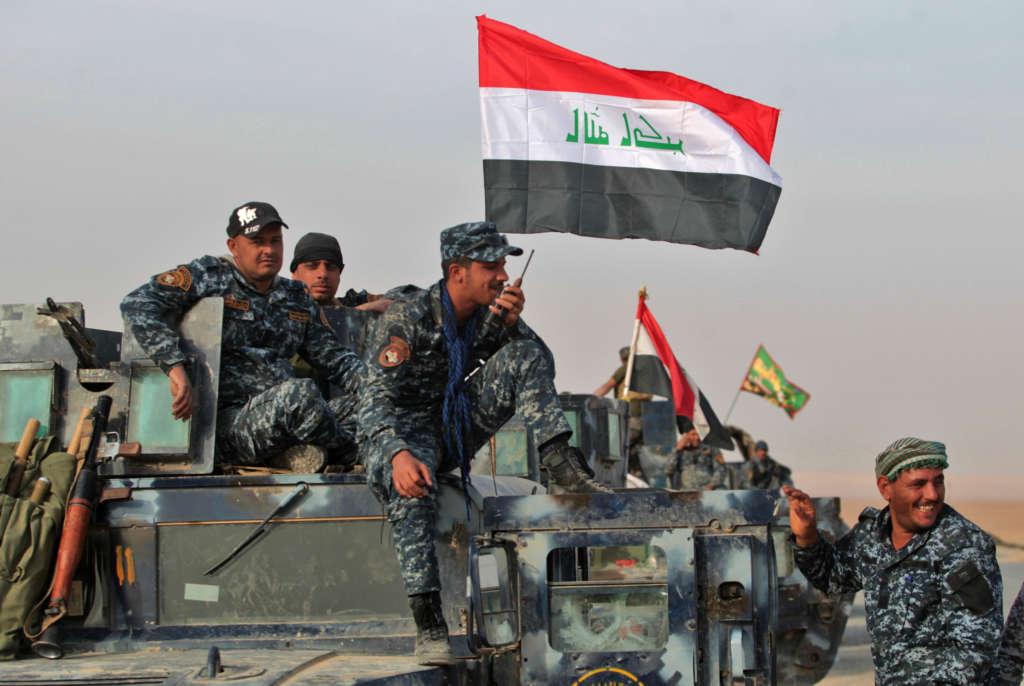Troops of Iraq’s elite Counter-Terrorism Service resumed their offensive against ISIS on the streets of Mosul on Friday after several days of relative quiet as the United Nations said ISIS militants have executed scores more people around the city this week.
The battle to retake Mosul, the jihadists’ last major bastion in Iraq, is now in its fourth week, and while troops have pushed into the east of the city, there are weeks, if not months, of fighting still to go.
“Our forces have begun the attack on Arbajiyah. The clashes are ongoing,” Staff Lieutenant Colonel Muntadhar Salem said, referring to an area in the east of the city.
The fighting came “after a few days of quiet,” he said.
Another CTS officer, Lieutenant Colonel Ali Hussein Fadhel, said that the first row of buildings in Arbajiyah had been seized.
“We are within firing range of Karkukli but the full attack has not yet started,” he said, referring to another eastern neighborhood.
In a makeshift command post in a two-story house, a CTS soldier was using an iPad to control a reconnaissance drone on the lookout for jihadist suicide bombers.
Iraqi forces launched the huge offensive to retake Mosul on October 17, with federal and Kurdish regional forces closing in on the city from three sides.
The Popular Mobilization Forces later began an advance on the town of Tal Afar, which commands the city’s western approaches, with the goal of cutting the jihadists off from territory they control in neighboring Syria.
Meanwhile, U.N. human rights spokeswoman Ravina Shamdasani said on Friday that ISIS has executed scores more people around Mosul this week and is reportedly stockpiling ammonia and sulphur in civilian areas, possibly for use as chemical weapons.
A mass grave with over 100 bodies found in the town of Hammam al-Alil was one of several ISIS killing grounds, Shamdasani said in Geneva, citing information gleaned from sources on the ground including a man who played dead during a mass execution.
Public executions were being carried out for “treason and collaboration” with Iraqi forces trying to recapture the city, or for the use of banned mobile phones or desertion.
People with explosive belts, possibly teenagers or young boys, were being deployed in the alleys of Old Mosul, while abducted women were being “distributed” to fighters or told they would be used to accompany ISIS convoys, she added.
The terrorist organization overran large areas north and west of Baghdad in June 2014, but Iraqi forces backed by U.S.-led air strikes have since regained significant ground.
